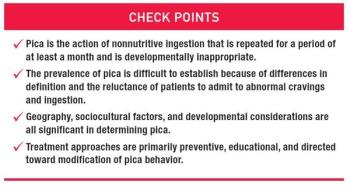
A syndrome described as purging following the ingestion of normal or small amounts of food in normal-weight persons has gained increasing attention in the field of eating disorders. Various terms have been used in the literature for this newly characterized syndrome, with purging disorder and eating disorder not otherwise specified-purging (only), or EDNOS-P, used most frequently.
